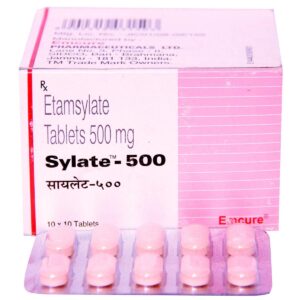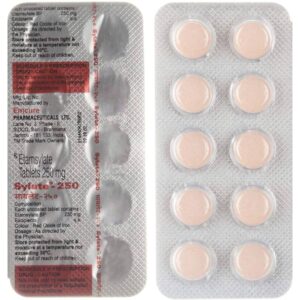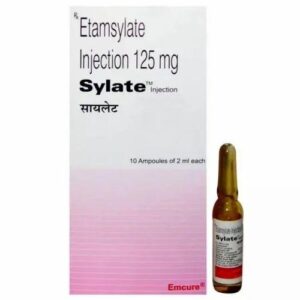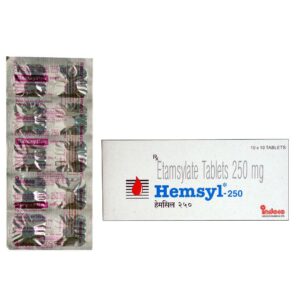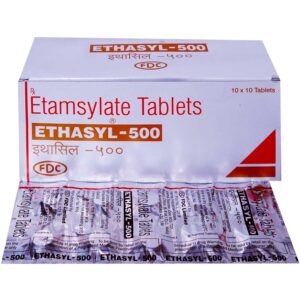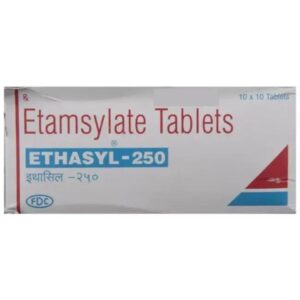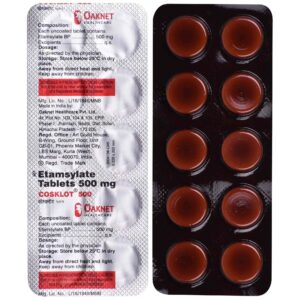ETHAMSYLATE
ETHAMSYLATE: Ethamsylate is a medication that is primarily used to control bleeding. It belongs to the class of drugs known as hemostatics. Ethamsylate works by increasing platelet adhesiveness and normalizing capillary resistance, which helps to reduce bleeding.
This drug is primarily prescribed for conditions associated with excessive or prolonged bleeding, such as menorrhagia (heavy menstrual bleeding), abnormal bleeding during or after childbirth, nosebleeds, bleeding from the gastrointestinal tract, and bleeding associated with surgery or dental procedures. It is also used in the management of hemorrhagic conditions like hemophilia and von Willebrand disease.
The recommended dose of ethamsylate varies depending on the condition being treated and the age of the patient. Generally, for adults, the usual oral dose is 1-2 tablets (500-1000 mg) taken three times a day. For children, the dosage is usually lower and determined by the healthcare provider based on weight and severity of the condition.
Ethamsylate is generally well-tolerated, but like any medication, it may have some side effects. Common side effects include gastrointestinal disturbances such as nausea, vomiting, indigestion, and diarrhea. These side effects are usually mild and resolve on their own. Rarely, allergic reactions may occur, which can manifest as skin rashes, itching, swelling of the face or throat, and difficulty breathing. If any of these more serious side effects occur, medical attention should be sought immediately.
It is important to note that ethamsylate should be used cautiously in patients with a history of blood clots or those who are at risk for blood clots. Additionally, it should not be used during the first three months of pregnancy unless absolutely necessary, as its safety during this period has not been established. As always, it is essential to consult with a healthcare professional before starting or stopping any medication.

